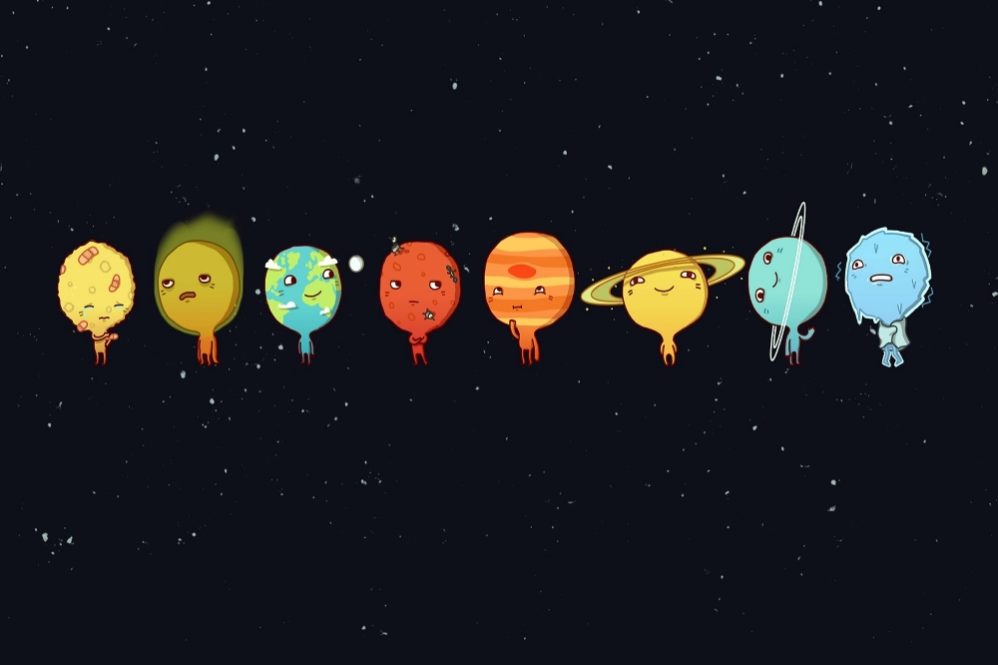
Finally, NASA is doing something important: Taking a closer look at the nicknames for cosmic objects.
In a real and not satiric press release announcing the move, Thomas Zurbuchen, associate administrator of the National Aeronautics and Space Administration’s Science Mission Directorate, said, “Our goal is that all names are aligned with our values of diversity and inclusion, and we’ll proactively work with the scientific community to help ensure that. Science is for everyone, and every facet of our work needs to reflect that value.”
This comes a little too late. It is 2020, after all. It also focuses on things like the Eskimo Nebula and the Siamese Twin Galaxy, and doesn’t take into account all celestial bodies. The sad fact is that it’s time to cancel all the planets in the solar system, starting with Uranus.
Discovered in 1781, the seventh stone from the sun was named for the Greek god of the sky. Although all the other planets except for Earth are named for Greek gods, this is especially troubling as the god of the sky is the sun, unless you have a misbegotten belief in a geocentric universe. Even then, though, no way Uranus would get the crown.
It’s a cold, desolate planet with harsh winds and foul-smelling clouds (obviously). Its environment is most likely too harsh to support any life, at least life as we know it. Its 27 moons are named for characters from the works of William Shakespeare and Alexander Pope, two white dudes. Its atmosphere is leaking out into space. As far as planets go, it’s the least capable of taking a joke. Uranus is no god of the sky.
Those reasons are not themselves sufficient, however, in explaining why Uranus is offensive. No, the real reason Uranus is offensive is the same as why the names for allthe planets are offensive. Naming the planets after Greek gods just reinforces patriarchy on a cosmic level. How can NASA truly achieve its goal of inclusivity if it doesn’t acknowledge this?
Starting with the one closest to the sun, we have Mercury, the messenger of the gods. He was also the god of financial gain (read: greed), and we don’t need a giant Gordon Gekko orbiting the sun. Canceled.
Then there’s Venus, goddess of love and beauty, who is just a tool of the patriarchy. Buh-bye.
Up next, it’s Mars, the god of war. War is bad, okay? Gone. Well, how about Jupiter, the king of the gods? Kings are also bad. Sayonara.
Saturn is named for the god of agriculture. Saturn’s reign was marked by peace and benevolence, but his girlfriend was called Mother Destruction, so he’s out.
We’ve already covered Uranus, so next on the chopping block is Neptune, the god of water. Water is good and Neptune was one of four gods that one could sacrifice a bull to, but bulls also produce methane (think of the polar bears!), and too much water causes problems, so Neptune is canceled.
What about Earth? Our planet is not named after a god or even a mortal — so far, so good. The word Earth, however, is derived from Old English and thus represents a tacit endorsement of colonialism. It’s time to ditch that one, too.
Some may object to renaming all the planets because it’s unnecessary and ridiculous. Well, those people should probably be canceled, too.
In 2020, there is no element of life, or lifeless planets, too small or too trivial to not get outraged over. It’s time for us to stop being the change we want to see in the world and start being the change we want to see in the universe. To not do so would be to not go too far enough!